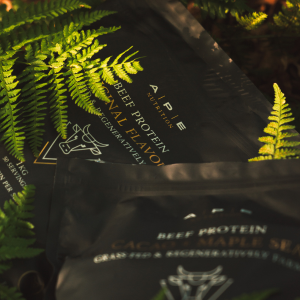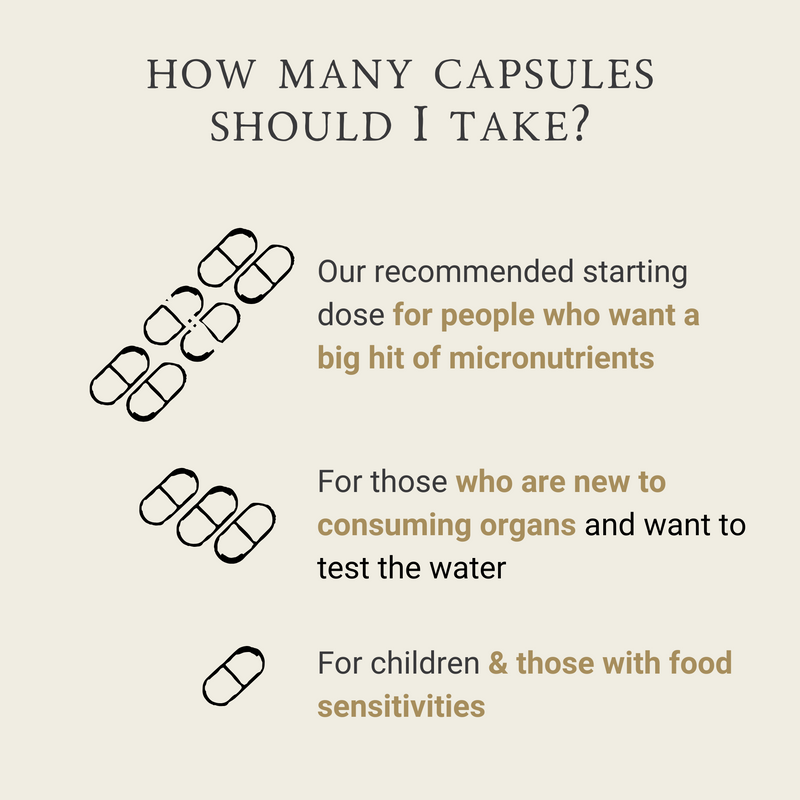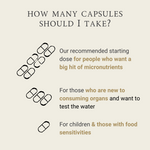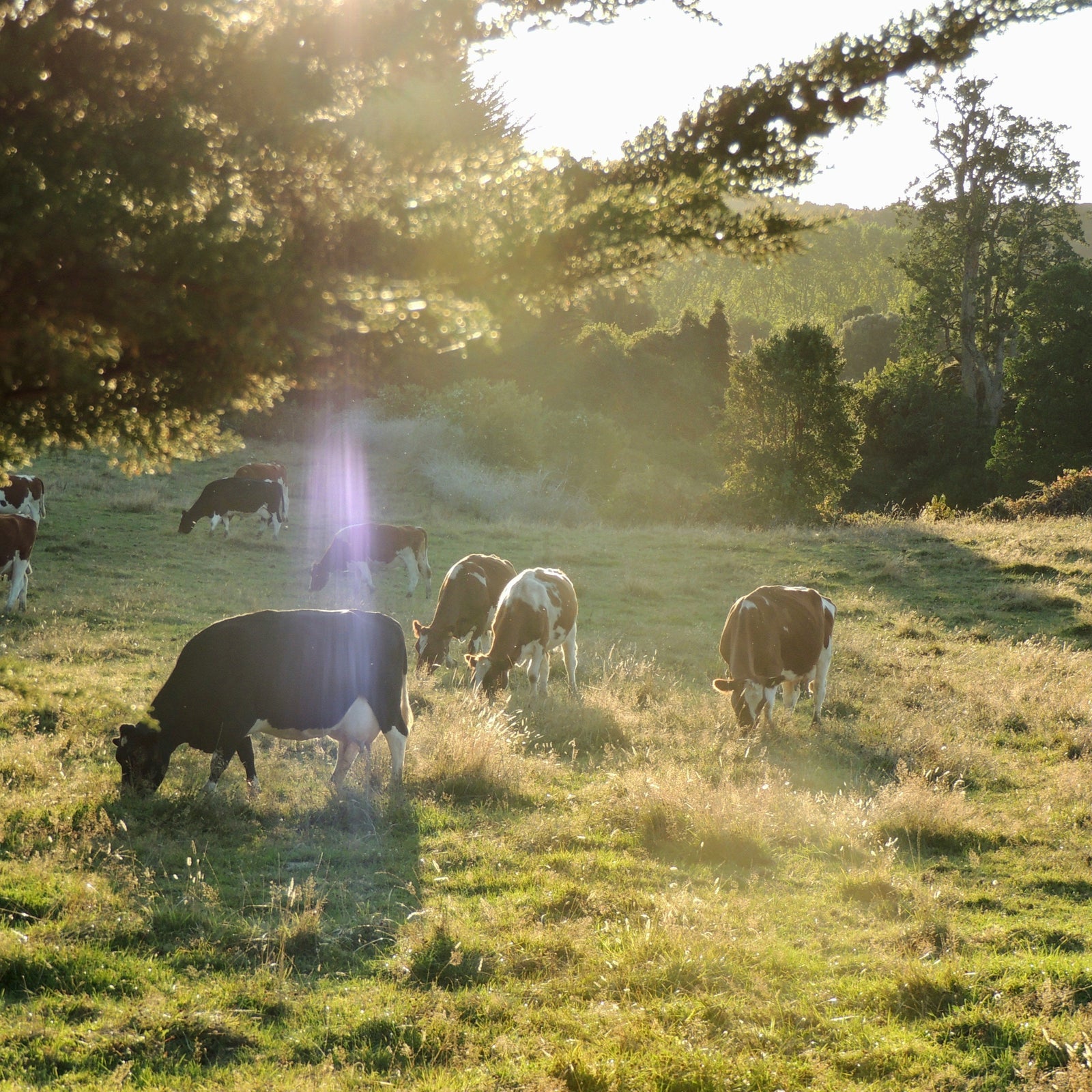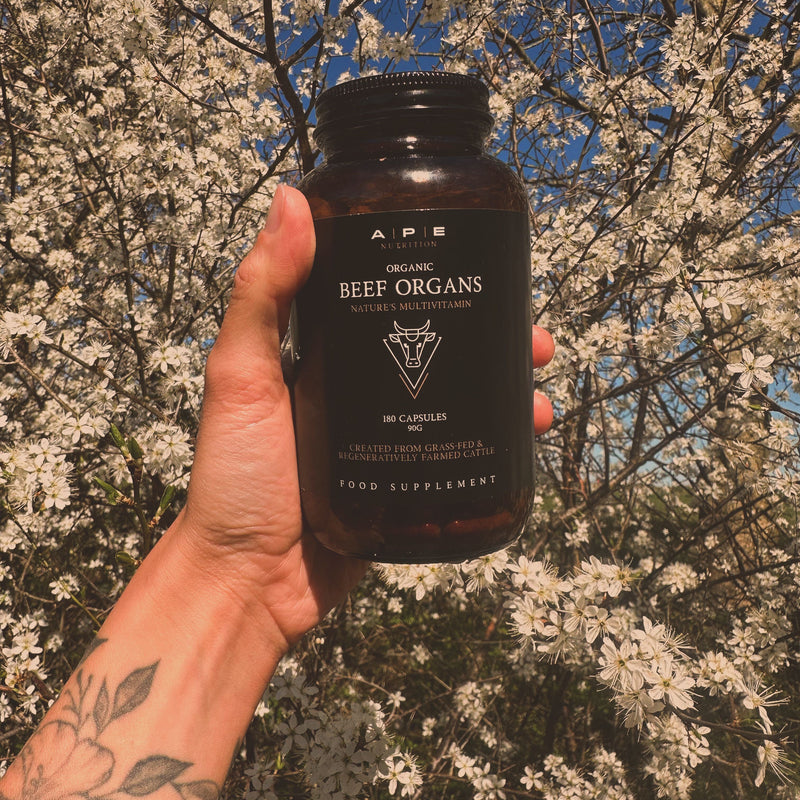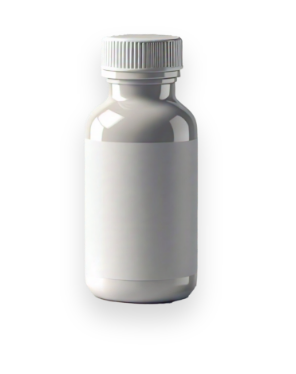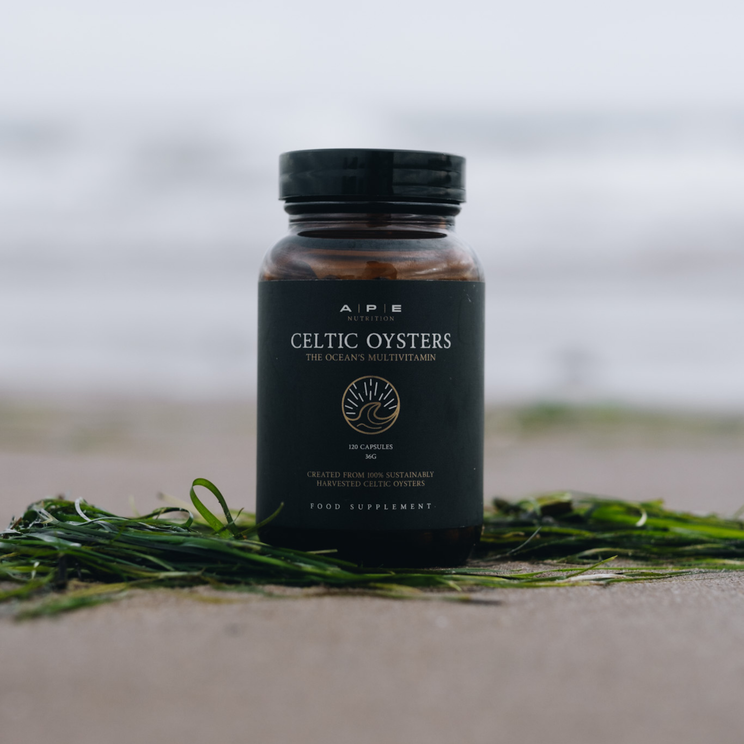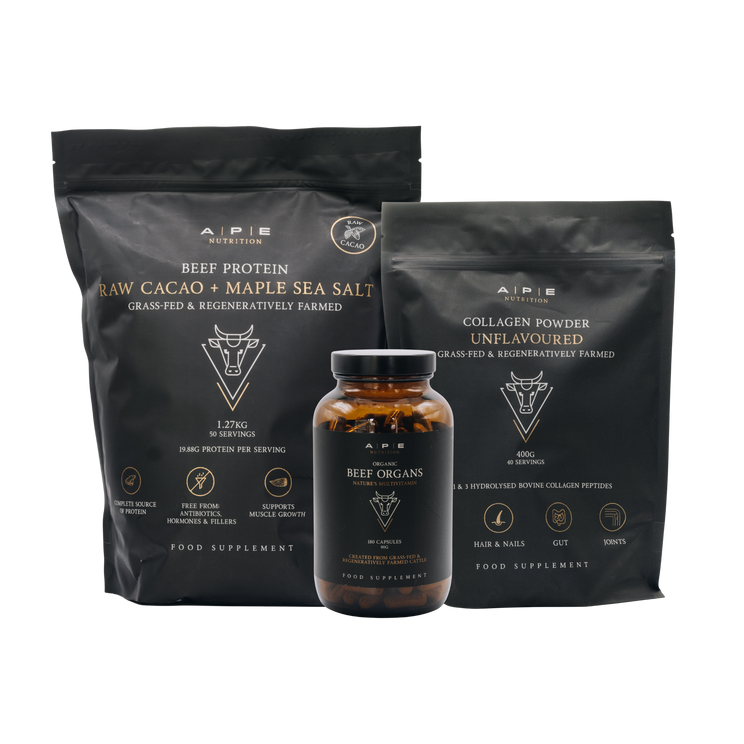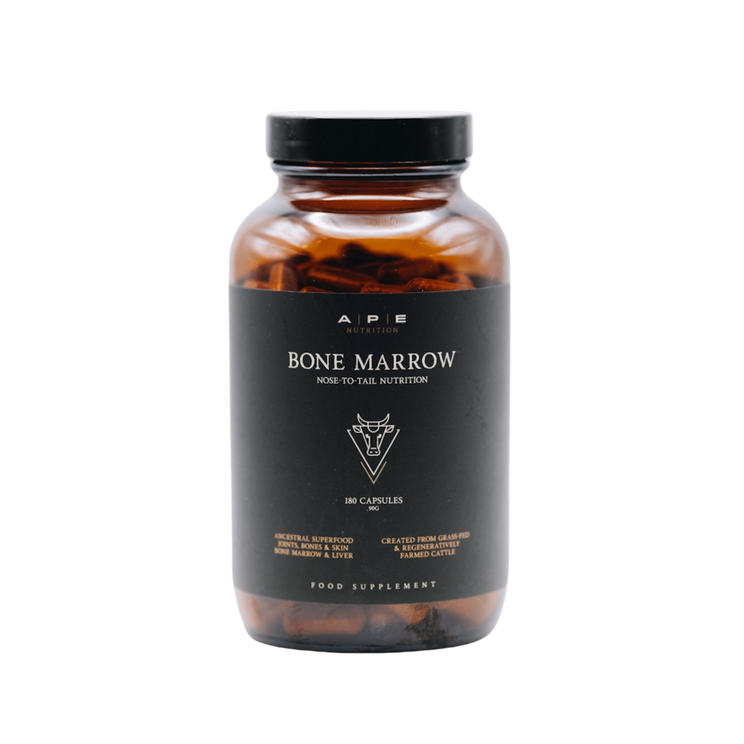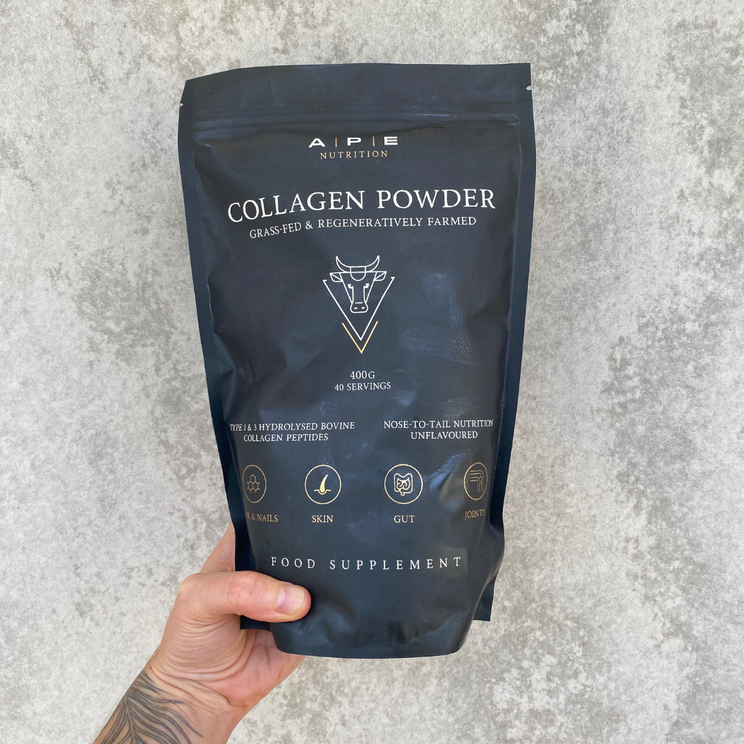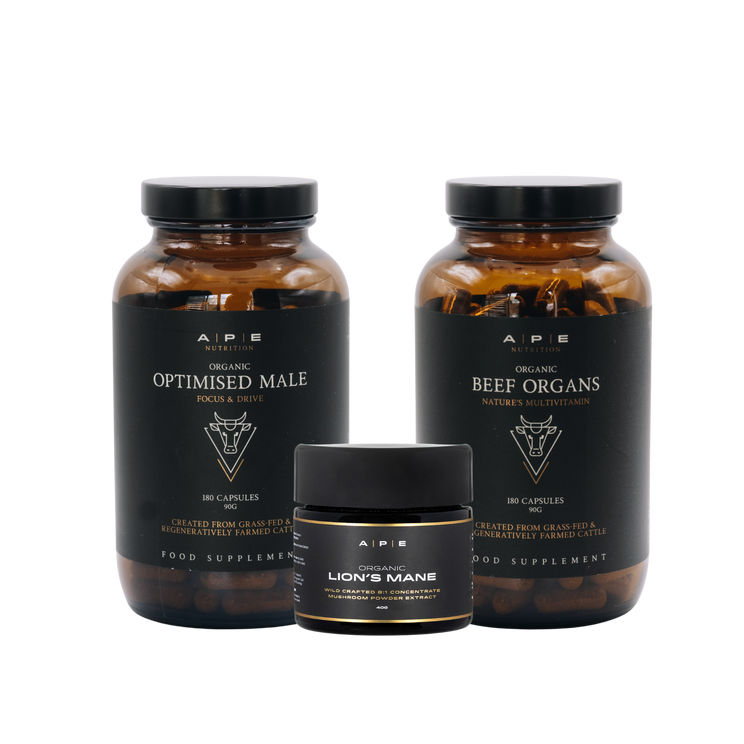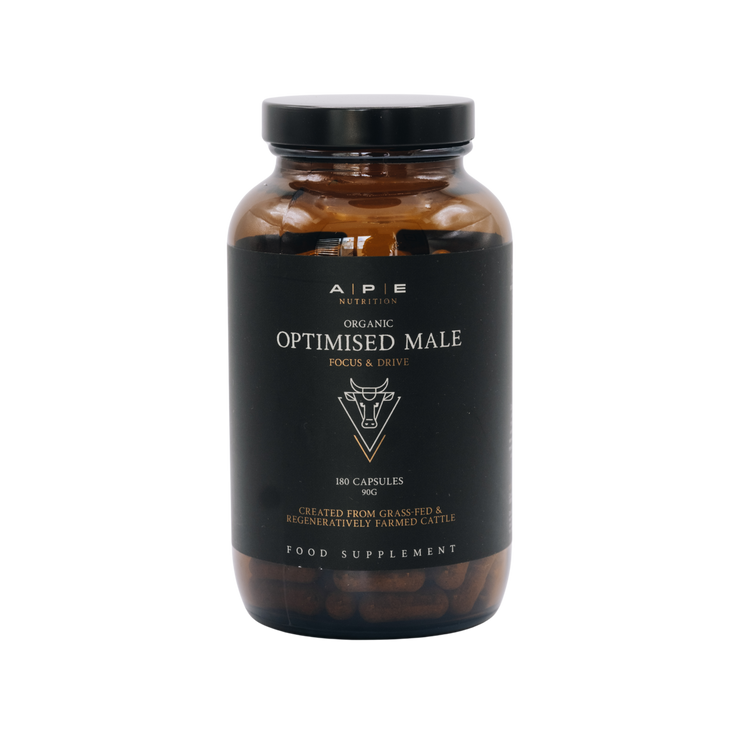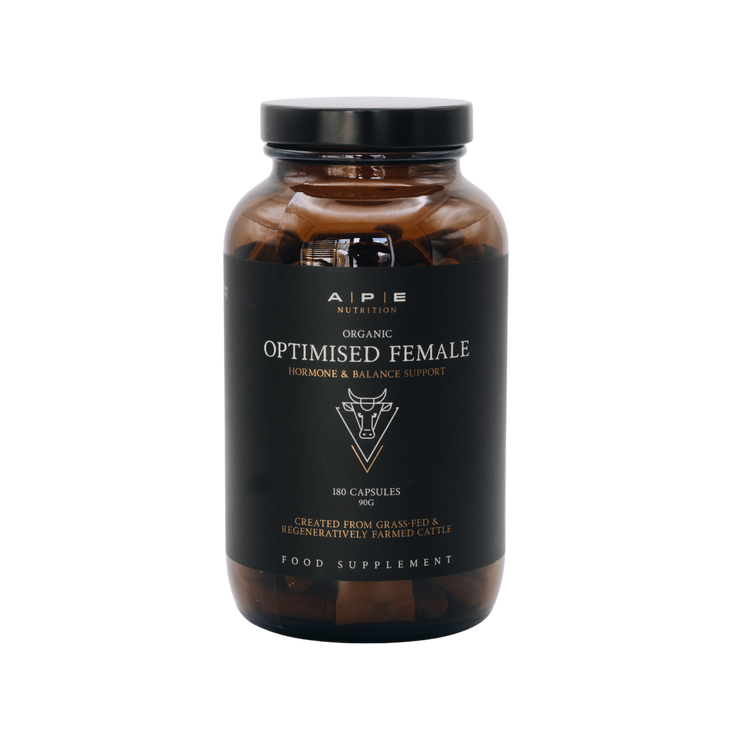Pregnancy is a very sensitive and personal time in life, and for this reason we urge you to seek the guidance of a health professional or nutritionist, who can guide you personally.
Although many traditional cultures prize liver as a wonderful fertility, pregnancy and postnatal food, mainstream health advice currently warns against consuming liver during pregnancy over concerns of vitamin A toxicity.
For this reason, we advise you to research this topic for yourself, speak to a health professional or nutritionist and make sure you're comfortable with your decision to consume or avoid it during this time.
From our experience... when Izzi was pregnant we really looked into this topic, and found Dr Lily Nichols' (a prenatal and postpartum dietician) book Real Food for Pregnancy very helpful (excerpt from the book / her website below). As a result Izzi made the decision to consume a small amount of Beef Liver during pregnancy and took 6 Beef Organs capsules daily. These are made from 50% Beef Liver, 25% Beef Kidney and 25% Beef Heart. Izzi felt these really helped her maintain good energy levels throughout the pregnancy and we were blessed with a healthy baby at the end. As a side note, Izzi also felt our Collagen powder really helped her during this time and as soon as our son was born, started taking our Female Vitality Starter Pack to replenish nutrients post birth.
“Many of you reading this may have been specifically warned to not consume liver during pregnancy, precisely because it is rich in vitamin A. This has sparked controversy over the years, mostly because old studies linked high-dose synthetic supplemental vitamin A to birth defects. However, we now know that naturally occurring vitamin A does not exert this toxicity, particularly when consumed with adequate vitamin D and vitamin K2, nutrients that are also found in abundance in liver. This illustrates perfectly why obtaining nutrients from food is far safer than getting them from supplements.
As one researcher points out, “Liver and supplements are not of equivalent teratogenic potential [risk of causing birth defects]. Advice to pregnant women on the consumption of liver based on the reported teratogenicity of vitamin A supplements should be reconsidered.”
Ongoing concerns over vitamin A toxicity from liver consumption are perplexing, considering that deficiency is fairly common in pregnant women. One study found that one-third of pregnant women were borderline deficient, despite having access to plenty of vitamin A-rich foods. This essential nutrient is widely recognised for its role in normal growth and development during pregnancy, including the developing lungs, kidneys, heart, eyes, and other organs. Even the National Institutes of Health states, “pregnant women need extra vitamin A for foetal growth and tissue maintenance and for supporting their own metabolism.” Certainly, an excessive amount of any nutrient is problematic, and since vitamin A is fat-soluble, it does raise the risk of toxicity. However, given what we know about deficiency and the safety of food-sourced vitamin A, this does not defend the recommendation to avoid liver, our most valuable food source of the vitamin.”





